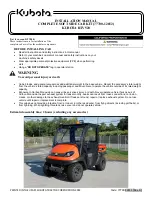
Creating Beautiful Embroidery
167
7
Fabric/stabilizer compatibility chart
Fabric/
Garment
No. of Backing
Pieces
No. of Topping
Pieces
Comments
Terry cloth
1 tear-away
1 water-soluble
Increase density and/or column width. Fine
details and small lettering tend to get caught
in the terry loops.
Satin jacket
Heavy lining:
None
Light or no lining:
1 tear-away
None
If garment slips in frame, causing alignment
problems, wrap inner frame with masking
tape or fabric bias tape. This provides a rough
surface to grip garment and also helps
minimize frame burn.
Cotton sheeting
1 tear-away
None
High-density or highly detailed designs may
require more backing. If so, use two pieces of
lightweight backing instead of one piece of
heavy backing.
Denim
1 tear-away
None
Reduce speed if needle begins to heat up and
the thread breaks.
Headwear
Optional
Optional
Change needles more often than usual
because the buckram backing dulls needles
faster. A lightweight tear-away backing helps
reduce thread breaks and regulates thread
tension. Use a topping on corduroy or foam
cap fronts.
Dress shirt
(woven)
1 tear-away
None
High-density or highly detailed designs may
require more backing. If so, use two pieces of
lightweight backing instead of one piece of
heavy backing.
Golf shirt
1 cut-away
Optional
Use topping for designs containing small
lettering or a lot of detail, and also for pique
knits.
Canton fleece
1 tear-away
Optional
Use a topping if the garment has a textured
surface, such as a basketweave or
pronounced twill.
Canvas
1 tear-away
None
Frame tightly
Corduroy
1 tear-away
1 water-soluble
A higher stitch density or more understitches,
as well as a topping, may be necessary to
prevent stitches from sinking into the fabric.
Lingerie or silk
1 or 2 lightweight
tear-away
Optional
Reduce sewing speed. The thread tension
should be low. Use topping for designs with
high detail or small lettering. For very fine
fabrics, use a thinner thread. Avoid extremely
narrow column stitching on letters or details;
instead increase column width or use a bean
stitch. Gently remove (don’t pull) backing and
topping from garment.
Sweater knit
1 cut-away or
adhesive tear-
away
1 water-soluble
Use tightly woven organza or curtain fabric in
a matching color as a backing for bulky or
“holey” knits.
Sweatshirt
1 cut-away or
adhesive tear-
away
Optional
Highly detailed designs may require two
layers of lightweight cut-away stabilizer. Use
a topping on extra-thick fabrics or with fine-
detail designs.
T-shirt
1 light-weight cut-
away or adhesive
tear-away
Optional
Use a topping on designs with fine detail or
small lettering. Tensions should be light.
Avoid stitch-heavy designs.
Sapphire.book Page 167 Friday, August 1, 2003 9:12 AM
Содержание PR-600
Страница 14: ... xiv Sapphire book Page xiv Friday August 1 2003 9 12 AM ...
Страница 114: ...Embroidering Settings 96 Sapphire book Page 96 Friday August 1 2003 9 12 AM ...
Страница 156: ...Selecting Editing Saving Patterns 138 Sapphire book Page 138 Friday August 1 2003 9 12 AM ...
Страница 172: ...Basic Settings and Help Feature 154 Sapphire book Page 154 Friday August 1 2003 9 12 AM ...
Страница 221: ...Troubleshooting 203 7 Sapphire book Page 203 Friday August 1 2003 9 12 AM ...
















































